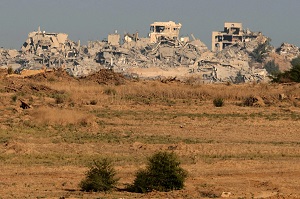Industry First (1–2) - By Raad Mahmoud Al-Tal , The Jordan Times
Once again, Jordan’s industrial sector is showing strong energy and growth. It is not only contributing to the economy but also becoming the main foundation for building a productive and competitive economy, as set out in the Economic Modernization Vision. Industry should no longer be seen as a traditional field. It needs to become a modern, technology-based system built on innovation and skilled human capital. This focus on people is important because industry is a labor-intensive sector that creates many jobs, making it a natural leader for the next stage of Jordan’s development.
Recent data show that industry contributed about 40 percent of the total economic growth recorded in the first half of this year, when the economy grew by 2.8 percent. This high share shows not only the strength of the sector but also a major shift in the sources of growth—industry is now driving the economy instead of simply following it. At the same time, industrial exports grew by 8.5 percent in the first seven months of the year, proving that the sector remains flexible and able to expand into markets despite difficult regional and global conditions.
This export growth is closely linked to the fact that 90 percent of Jordan’s national exports are industrial. This means industry is the backbone of the country’s trade performance, and any improvement in it directly helps reduce the current account deficit and supports monetary stability. The sector now employs more than 250,000 Jordanians and plays a central role in job creation. It has also reduced dependence on foreign workers by 40 percent and increased women’s participation to 30 percent. These numbers show a positive shift inside the sector—from relying on low-skilled labor to focusing on training, qualification, and technical skills.
Industry has also become the top destination for new investments. In the past three years, it attracted about 2 billion dinars under the current Investment Law—around 75 percent of all registered investments. This shows that investors clearly prefer industry over other sectors like real estate or services, thanks to available incentives, infrastructure, and access to promising export markets. The sector’s potential could grow even more if policymakers manage to reduce the high costs of transport, energy, and production inputs, which remain the main challenges to its competitiveness.
Today, Jordan’s industry faces a real opportunity to strengthen its position as a key engine of growth and a steady source of jobs. To achieve this, industrial policies must align with broader reforms in energy, transport, and vocational education. If this happens, the industrial sector will truly be able to lead Jordan’s economic transformation in the coming years.
Dr. Raad Mahmoud Al-Tal — Associate Professor of Economics — School of Business, The University of Jordan
Latest News
-
 'Come back quick': Supporters cheer Sarkozy as French ex-leader goes to jail
'Come back quick': Supporters cheer Sarkozy as French ex-leader goes to jail
-
 Trump says MidEast allies ready to 'straighten out Hamas' if asked
Trump says MidEast allies ready to 'straighten out Hamas' if asked
-
 Britain deploys troops to 'Israel' to monitor Gaza ceasefire
Britain deploys troops to 'Israel' to monitor Gaza ceasefire
-
 King attends MED9 Summit, calls for joint action to ensure commitment to Gaza agreement
King attends MED9 Summit, calls for joint action to ensure commitment to Gaza agreement
-
 Lavrov and Rubio discuss Putin-Trump summit, Zelensky seeks invite
Lavrov and Rubio discuss Putin-Trump summit, Zelensky seeks invite